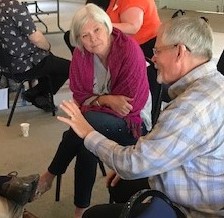
HOUSTON, TX (ANS) – A church in Southeast Texas hosted an Orality Training Workshop with about 30, mostly senior members. It was an amazing experience to see the barriers come down and more intimate relationships grow throughout the day. Throughout the training participants shared their experiences and spiritual journeys. There were many tears of joy as they discovered how much they didn’t know about their friends they had attended church services with for many years. They shared about how they had endured many storms of life, about their experience of the new birth, how they had encountered the Living Water of Jesus, and many other experiences and insights. Prior to that day, they had never shared on that level of intimacy. The stories in the training set the stage for new and better relationships and greater unity.
Why, vs How and What
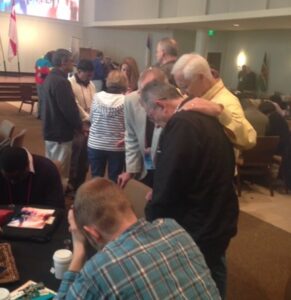
From reports, we are hearing from around the world, God’s people are beginning to put aside minor or secondary differences for the greater purposes of God. They are finding common ground for more unity and unified efforts to solve problems and meet needs. This is nothing new, and hopefully can be used for increased unity and greater impact for advancing the Kingdom of God. There seem to be more questions than answers these days. There is a tendency to ask “Why” questions, when it might be more productive to ask “How, and What” questions. When crises come, maybe we should ask “How should I respond, and what can I do?” Hurricanes, earthquakes, wildfires, terrorists attacks and other disasters tend to bring people to gather for greater unity. Racial, ethnic, tribal and denominational difference seem to fade away during those times. Hard times often bring out the best in people. Many have been praying for reconciliation and unity in the Body of Christ for decades. Maybe the Lord is using this global pandemic and other conflict and crises in answering those prayers.
Lessons from the Life, Spirit, and Teaching of Jesus
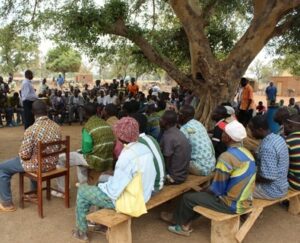
Thankfully, we don’t have to wait for some crisis to experience more unity in the Body of Christ. From what we learn about the life, Spirit and teachings of Jesus, we know that oneness and unity in the Body of Christ is very important. The 17th chapter of the Gospel of John makes that abundantly clear. However, in a practical way, how do we achieve unity? How can the Church (the Body of Christ) be unified when there is so much diversity and division among the various streams and traditions of the Church? How can there be unity and cooperation among an association of churches? Or, how can local congregations (house churches, small fellowships, church plants) achieve unity?
Spirit of Reconciliation
Perhaps an even more important question would be “How can any group, community, organization, or even a family have unity?” Well, it seems that effective communication and trusting relationships would be the most basic building blocks to oneness and unity, anywhere with any group of people. Obviously, from a biblical perspective, the Spirit of reconciliation (which is the Spirit of Jesus) is the basis of resolving conflict and division, leading to genuine unity.
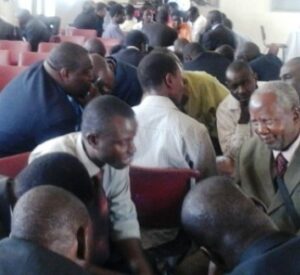
Power of Stories, Questions, and Listening
Pastors in East Africa discovered that they had more in common than the things that divided them. What was the key to this important discovery? It was their participation in an Orality Training Workshop sponsored by Living Water International. Pastors and church leaders are discovering how telling stories, asking questions, listening and engaging in heart level conversations can help resolve conflict, remove barriers and build bridges. Individual members of local congregations and communities are experiencing greater unity and connectivity by participating in Orality Training events. Families have shared with us how Bible Storying and Orality Training has better equipped them with tools for more effective family devotions. Simply telling and discussing the stories over meal times can foster greater unity within families. It also equips children to more effectively communicate the Gospel. When children learn stories, they tend to tell the stories. When the stories are from the Word of God, shared in the power of the Spirit, they can have eternal impact.
Small, Simple and Reproducible
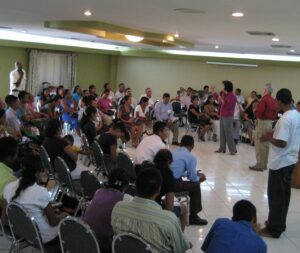
A pastor in Central America caught the vision for using orality strategies in his church. It resulted in the growth of his congregation, as well as more effective disciple making and reproducing church planting efforts. Another pastor recognized how orality strategies enabled him to better equip, train and mobilize storytelling evangelists at every level of education, and among all gender and generational groups. In the Orality Movement, we are discovering that the simple teachings of Jesus, and the examples from the Early Church are often overlooked in our modern Western Church cultures.
Biblical Unity and Disciple Making
The rapidly reproducing disciple-making and church planting movements, primarily in the Global South, are providing many examples of biblical unity. They seem to be leading the way back to important lessons from the Early Church. Hopefully and prayerfully, we can see an awakening in North America and the Western World, much like what is happening now in other parts of the world. The pandemic we are experiencing these days is forcing all of us to think and live differently. All that to say that there is a Great Commission opportunity for us to join God in His redemptive activities. People are more open and interested in spiritual things during crisis times. Now is the time for God’s people to return to the most basic principles of loving one another, experiencing and sharing the reproducing life of the Lord Jesus.
For more information, visit: www.water.cc or www.orality.net






